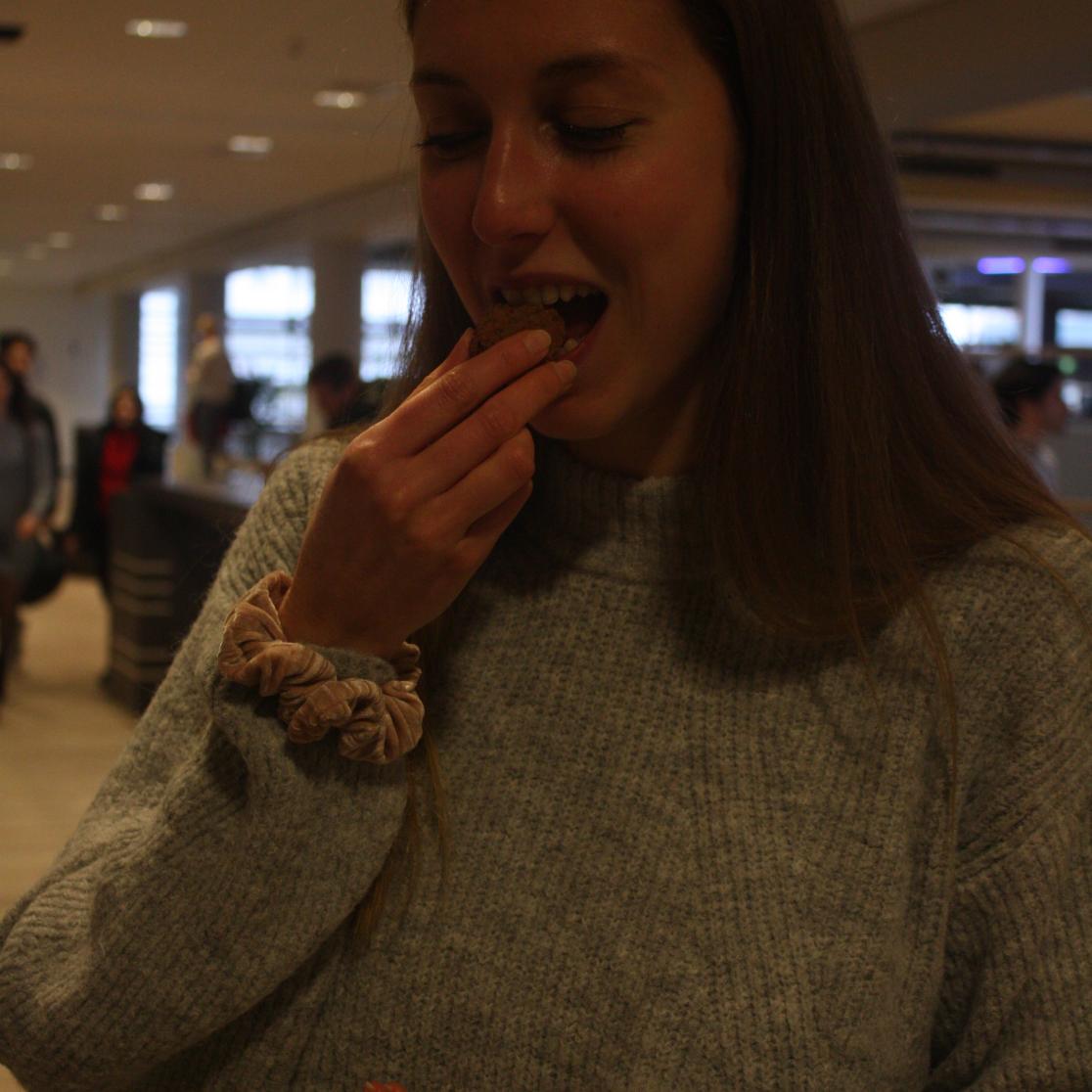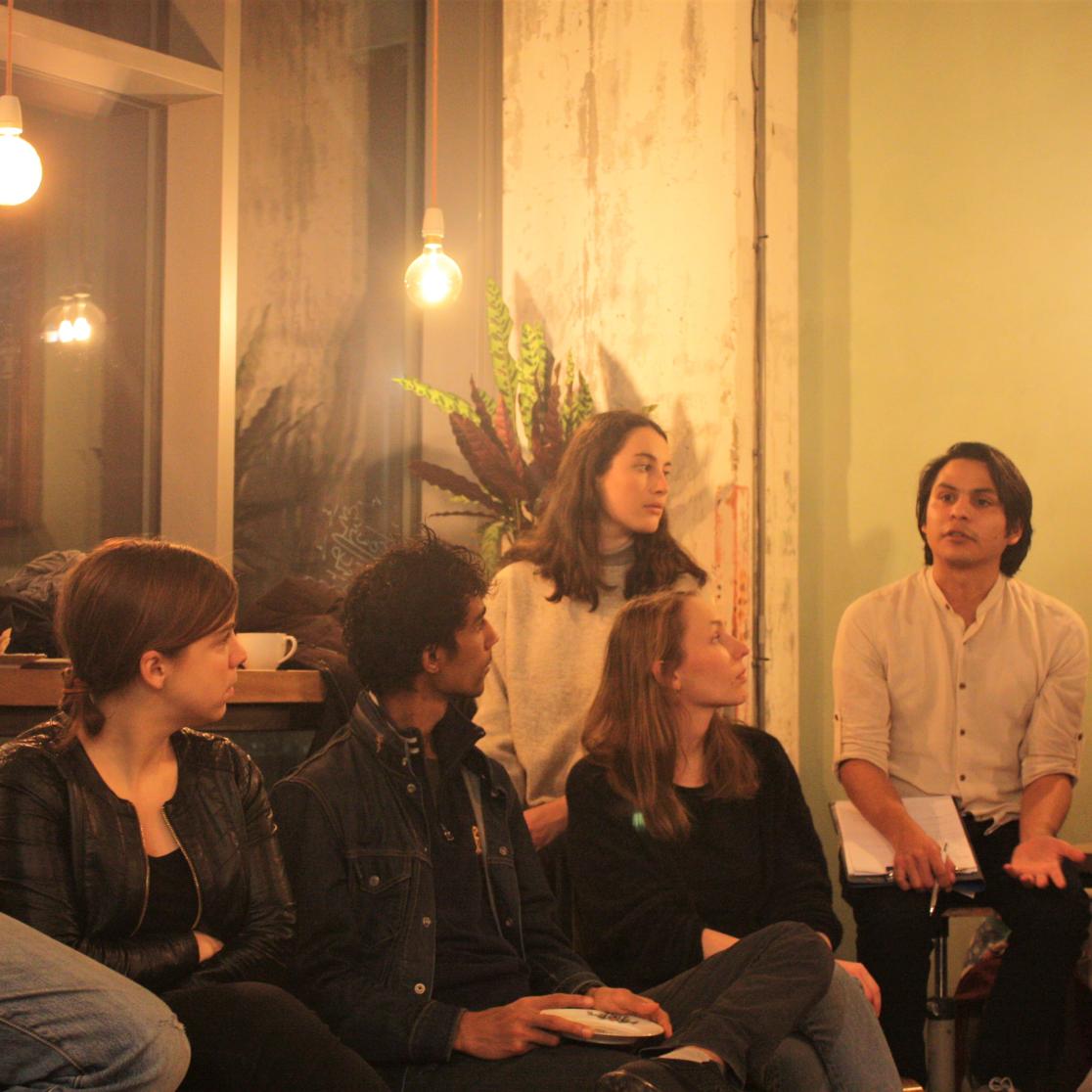Sustainability & food week
Last week was the Dutch National Week Without Meat. Alligned with that Green Office organised events during their Sustainability & Food week. Despite an early ending of the week due to COVID-19, Green Office had the chance to talk to a lot of people about their food preferences.
Alternatives to meat
“On average, if you skip meat for a week, you have consumed 770 grams less meat than the average Dutch person tends to consume weekly. We took the chance of this meat free week to talk about the relationship between sustainability and food.”
At the Randwyck mensa, Green Offce came over to chat about a sustainable diet. “Together with UM’s catering company Albron, we offered free delicious vegetarian and vegan snacks and smoothies. We were very happy to hear that all of you enjoyed the meat alternatives and support Albron’s additions to the cantine's menu!”

Local foodcooperatives
And together with Gedeelde Weelde and Foodcoop Maastricht, Green Office hosted a discussion on local food cooperatives. “Mushrooms grown in a local cave, the power of community building, the creation of alternative spaces and plastic-free packaging, these are just some of the subjects we have discussed.”
“Despite an early ending, we hope that you enjoyed Sustainability & Food Week as much as we did. Thanks again to Gedeelde Weelde, Foodcoop Maastricht and Albron for sharing their experiences , and thanks to everyone who joined and shared their critical questions and insightful comments!”
- Green Office: Katja, Catherine, Melanie, Nina, Svea & Willow.

Also read
-
Macrophages as key to treating liver fibrosis
Sabine Daemen is researching how certain macrophages can slow down fatty liver disease and fibrosis in order to develop new therapies.

-
Come to your senses: enrich your life and learning
Emilie Sitzia researches how we can rediscover our senses and use them to enhance our learning. This resulted in a colourfully illustrated book, 'Come to Your Senses', a senses-based learning guide.

-
Teacher Information Points at UM
UM faculties now host Teacher Information Points (TIPs) that offer local, “just-in-time” and on-demand support for teaching staff. The aim is simple: to provide help that is closely connected to day-to-day teaching practice.
